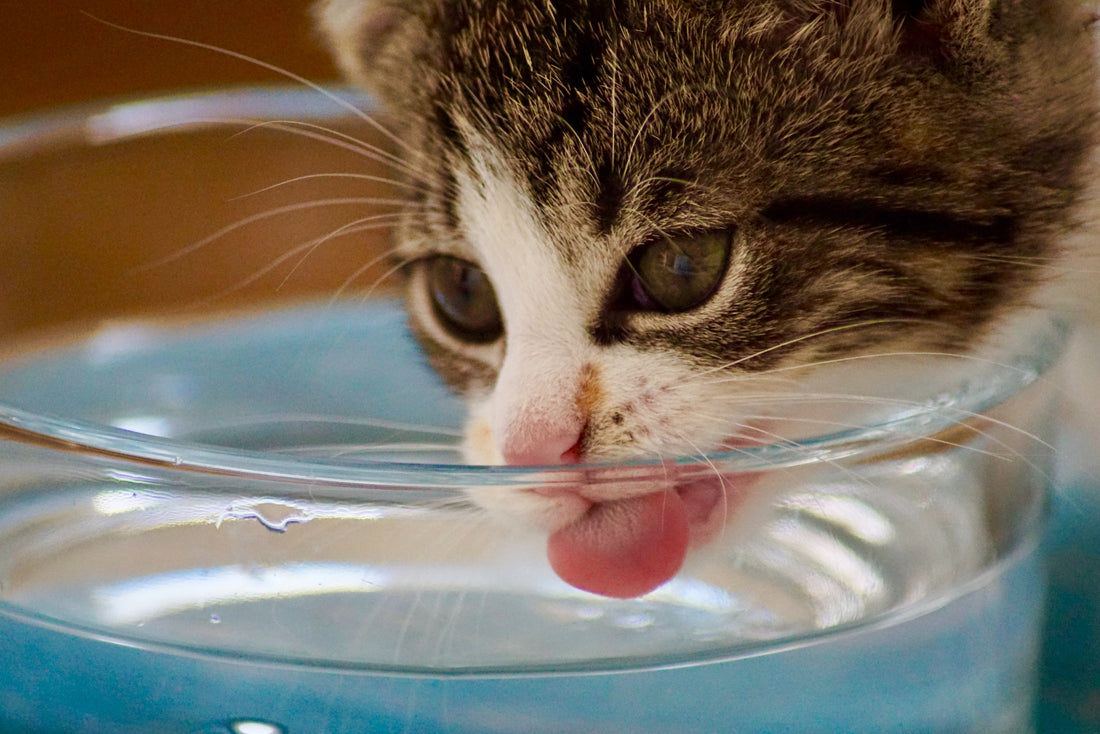Why is my cat so thirsty?
Have you noticed that your cat is drinking more water than usual?
While it’s normal for your cat’s water intake to vary and fluctuate from time to time, if your cat is drinking more water than usual on a regular basis, it may be indicative of an underlying health issue that should not be ignored.
Polydipsia is the medical term for abnormally excessive thirst, and it presents as a symptom of various diseases, conditions, illnesses and disorders, causing an increase of water consumption.
While some causes of this condition are temporary and easily treated, others may be a sign of something far more serious and should be addressed quickly for an optimal prognosis.

8 Common causes of Polydipsia
1. Diabetes
When the body cannot properly regulate blood sugar levels, cats will have an increase in thirst and urination. And as diabetes is very common, especially in older cats, it should be considered as the #1 cause of excessive thirst.
2. Urinary Tract Infections
UTIs can irritate a cat’s bladder, and causing them to drink more water in an attempt to flush out any bacteria.
3. Kidney Disease
If your cat has renal disfunction, you will likely notice an increase in water consumption. This is because the kidneys are responsible for regulating the proper level of water in the body needed to effectively filter out waste products from the blood.
4. Hyperthyroidism
This condition causes an overactive thyroid gland, which can result in increased water intake. Other symptoms of hyperthyroidism often include weight loss. Despite an increased appetite.
5. Dehydration
Any illness that causes vomiting and/or diarrhea, can result in your cat quickly becoming dehydrated. Other common causes of dehydration is exposure to hot temperatures, and higher than normal activity levels. In addition, excessive urine output also causes a higher amount of water intake to compensate for the loss of fluids.

6. Additional Medical Conditions
Along with the more common issues listed above, there are other medical conditions that can cause polydipsia in cats, including an electrolyte imbalance, liver disease, cancer, and endocrine disease.
7. Stress and Anxiety
When confronted with a stressful situation or environment, some cats will eat more, while some may stop eating. Others may act out, exhibiting behavioral issues, and some will just drink more water! For whatever reason, some cats find drinking water to be self-soothing.
8. Medications
If your cat has recently been put on a medication, do not rule this out as a possible cause of excessive water intake. Common medications with increased thirst as a side effect include: steroids, diuretics, and anti-seizure medications.
Treating Excessive Thirst (Polydipsia) in Cats
Because polydipsia itself is not an illness or a disease, but rather a symptom, step #1 is a visit to your vet to determine the underlying cause of your cat’s excessive thirst.
Performing the appropriate diagnostic tests, including urinalysis and bloodwork, will help your vet diagnosis the problem and recommend the appropriate treatment or management.
Every Sale Supports a Shelter Pet. Learn More.
Created in Vermont. Learn More.
If you suspect your pet is sick, call your vet immediately. For health-related questions, always consult your veterinarian, as they have examined your pet, know the pet's health history, and can make the best recommendations for your pet.














